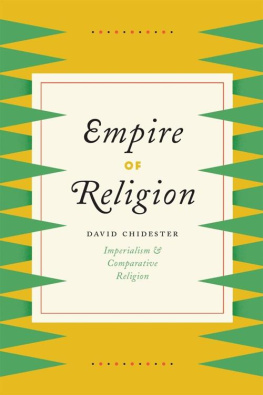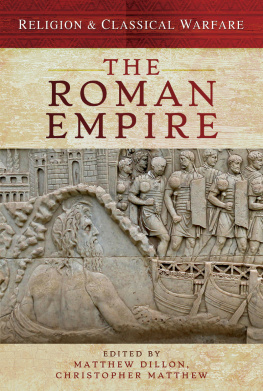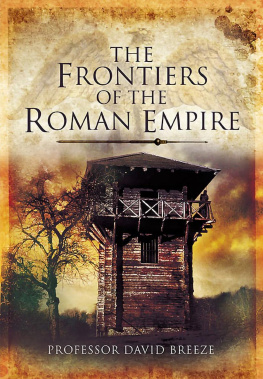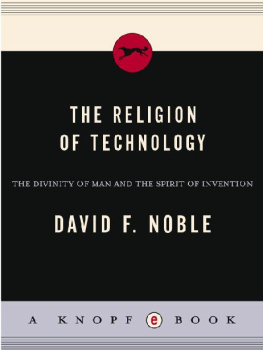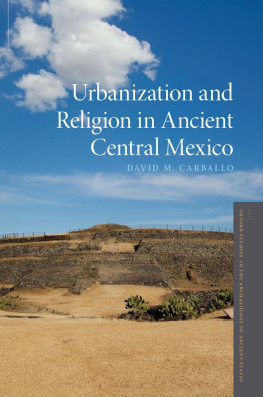David Chidester - Empire of Religion
Here you can read online David Chidester - Empire of Religion full text of the book (entire story) in english for free. Download pdf and epub, get meaning, cover and reviews about this ebook. year: 2014, publisher: University of Chicago Press, genre: Religion. Description of the work, (preface) as well as reviews are available. Best literature library LitArk.com created for fans of good reading and offers a wide selection of genres:
Romance novel
Science fiction
Adventure
Detective
Science
History
Home and family
Prose
Art
Politics
Computer
Non-fiction
Religion
Business
Children
Humor
Choose a favorite category and find really read worthwhile books. Enjoy immersion in the world of imagination, feel the emotions of the characters or learn something new for yourself, make an fascinating discovery.
- Book:Empire of Religion
- Author:
- Publisher:University of Chicago Press
- Genre:
- Year:2014
- Rating:4 / 5
- Favourites:Add to favourites
- Your mark:
- 80
- 1
- 2
- 3
- 4
- 5
Empire of Religion: summary, description and annotation
We offer to read an annotation, description, summary or preface (depends on what the author of the book "Empire of Religion" wrote himself). If you haven't found the necessary information about the book — write in the comments, we will try to find it.
Empire of Religion — read online for free the complete book (whole text) full work
Below is the text of the book, divided by pages. System saving the place of the last page read, allows you to conveniently read the book "Empire of Religion" online for free, without having to search again every time where you left off. Put a bookmark, and you can go to the page where you finished reading at any time.
Font size:
Interval:
Bookmark:
DAVID CHIDESTER is professor of religious studies and director of the Institute for Comparative Religion in Southern Africa at the University of Cape Town. He is the author or editor of over twenty books, most recently, Wild Religion: Tracking the Sacred in South Africa.
The University of Chicago Press, Chicago 60637
The University of Chicago Press, Ltd., London
2014 by The University of Chicago
All rights reserved. Published 2014.
Printed in the United States of America
23 22 21 20 19 18 17 16 15 14 1 2 3 4 5
ISBN-13: 978-0-226-11726-3 (cloth)
ISBN-13: 978-0-226-11743-0 (paper)
ISBN-13: 13: 978-0-226-11757-7 (e-book)
DOI: 10.7208/chicago/9780226117577.001.0001
Library of Congress Cataloging-in-Publication Data
Chidester, David, author.
Empire of religion : imperialism and comparative religion / David Chidester.
pages cm
Includes bibliographical references and index.
ISBN 978-0-226-11726-3 (cloth : alk. paper)ISBN 978-0-226-11743-0 (pbk. : alk. paper)ISBN 978-0-226-11757-7 (e-book)
1. South AfricaReligion. 2. ImperialismReligious aspects. 3. Great BritainColoniesAfrica. I. Title.
BL2463.C44 2014
200.9171'241dc23
2013035083
 This paper meets the requirements of ANSI/NISO Z39.481992 (Permanence of Paper).
This paper meets the requirements of ANSI/NISO Z39.481992 (Permanence of Paper).
Empire of Religion
Imperialism and Comparative Religion
DAVID CHIDESTER
The University of Chicago Press
CHICAGO AND LONDON
For Jonathan Z. Smith
Contents
Preface
In his magisterial survey of comparative religion published in 1905, Louis Henry Jordan appended a chart that collated information on university programs in the field from all over the world. The continent of Africa was represented in this chart by one university: Africa, Cape Colony, Cape TownThe University of the Cape of Good Hope. Regarding that university, Jordans chart inquired, Which department makes present provision for this subject? The answer: None. Looking to the future, the chart asked, Is such a foundation probable? In the relevant column appeared the blunt entry No. According to Jordan, then, the University of Cape Town, the region of southern Africa, and the entire continent of Africa did not support the academic study of comparative religion; moreover, its introduction was unlikely in the foreseeable future. This government report suggested that comparative religion could be deployed as a science of knowledge and power, as an aid to the containment and control of indigenous populations. Although the academic discipline had not been established in a university department, comparative religion was nevertheless being practiced in South Africa.
In 1969, a Department of Religious Studies was established at the University of the Cape of Good Hope, the University of Cape Town. Since 1984, I have been working there. Dedicated to an open, diverse, intercultural, and interdisciplinary study of religion and religions, the department has been a good place in which to develop critical engagements with the power relations in colonialism, apartheid, and postapartheid nation-building in South Africa. I have also found it to be a good place for thinking about the history of the study of religion. In my graduate training at the University of California, Santa Barbara, I was introduced to a genealogy of the study of religion that began with British imperial theorists. I remember being thrilled to learn that we had a founder, Friedrich Max Mller, but being disappointed when I was almost immediately told that everything he said was wrong. All of the ancestors in this lineage, such as E. B. Tylor, Andrew Lang, and James Frazer, were wrong. After a few years in South Africa, finding myself gradually, sometimes unconsciously, using the word us to refer to South Africans or Africans, I again read the work of these imperial ancestors and found that they were not just talking about religion. They were talking about us. As an alternative genealogy of the study of religion, this book tracks back and forth between an imperial center and a colonized periphery. In the end, we might still find that the ancestors of the study of religion were wrong, but we will see how they were wrong in interesting and important ways.
In a previous bookSavage Systems: Colonialism and Comparative Religion in Southern AfricaI argued that comparative religion was not only present but that it actually permeated intercultural relations on contested southern African frontiers.the very categories of religion and religions were produced and reproduced as instruments of both knowledge and power in specific colonial situations during the nineteenth century in southern Africa.
While Savage Systems explored comparative religion on one colonized periphery, this book focuses on the metropolitan center. However, it rediscovers the center of theory production in the study of religion from the perspective of the periphery. Empire of Religion documents and analyzes the complex relations between the emergence of a science of comparative religion in Great Britain during the second half of the nineteenth century and the colonial situation in southern Africa. In the process, it provides a counterhistory of the academic study of religion, an alternative to standard accounts, such as Eric Sharpes Comparative Religion, J. Samuel Preuss Explaining Religion, and Walter Cappss Religious Studies: The Making of a Discipline, that have tracked the internal intellectual development of a European academic discipline but have not been interested in linking the nineteenth-century and early-twentieth-century science of comparative religion with either the power relations or the historical contingencies of the imperial project. Anchoring the study of religion in history, Empire of Religion advances an interpretive analysis of imperial comparative religion.
In providing a new history of the study of religion, Empire of Religion locates knowledge about religion and religions within the power relations of imperial ambitions, colonial situations, and indigenous innovations. The book uncovers the material mediationsimperial, colonial, and indigenousin which knowledge about religion was produced during the rise of an academic study of religion between the 1870s and the 1920s in Europe and North America. Focusing on one colonial contact zone, South Africa, as a crucial site of interaction, the book shows how imperial theorists such as Friedrich Max Mller, E. B. Tylor, Andrew Lang, and James Frazer depended upon the raw materials provided by colonial middlemen who in turn depended upon indigenous informants and collaborators who were undergoing colonization. Reversing the flow of knowledge production, African theorists such as W. E. B. Du Bois, S. M. Molema, and H. I. E. Dhlomo turned European imperial theorists of religion into informants in pursuing their own intellectual projects. By developing a material history of the study of religion, Empire of Religion documents the importance of African religion, the persistence of the great divide between savagery and civilization, and the salience of complex mediations in which knowledge about religion and religions was produced, authenticated, and circulated within imperial comparative religion.
My history of the study of religion is guided by these three questions: How is knowledge about religion and religions produced? How is that knowledge authenticated? and How is that knowledge circulated? In imperial, colonial, and indigenous circulations, as we will see, knowledge about religion and religions was not merely replicated but also recast as alternative knowledge, so circulation could also be a means for producing knowledge. While attending to power relations, my story is also an interpretive analysis of enduring methods in the study of religion, such as cognitive studies and cultural studies, which arose from this history. Throughout this book, it must be clear that I do not place myself outside of the genealogy I trace. It is my genealogy. However, by situating this story in South Africa, I hope to make a localized contribution to ongoing efforts in understanding the history of the study of religion.
Next pageFont size:
Interval:
Bookmark:
Similar books «Empire of Religion»
Look at similar books to Empire of Religion. We have selected literature similar in name and meaning in the hope of providing readers with more options to find new, interesting, not yet read works.
Discussion, reviews of the book Empire of Religion and just readers' own opinions. Leave your comments, write what you think about the work, its meaning or the main characters. Specify what exactly you liked and what you didn't like, and why you think so.

